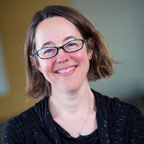Voices of U of U Health
Sharing Stories & Moving Forward
In the springtime spirit of sunshine and new growth, close to a thousand members of the University of Utah Health community gathered virtually last week to consider how to move forward and share stories reflecting on the last year. It has been a tough year for all of us in so many different ways. At our Moving Forward Town Hall, on May 14, we talked about where we find ourselves now, in the Spring of 2021, and where we intend to go together. Michael Good, MD, CEO of U of U Health, moderated the lunchtime meeting and explained that its primary purpose was for students, staff, and faculty to take a moment to pause and take a deep breath together. “We’re not saying the pandemic is over so we need to move on,” Good said. “But collectively, we can let down our guard a bit, center ourselves, and move forward together.”
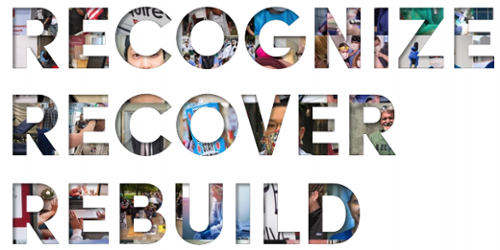
Other administrators and I were asked to discuss how U of U Health is doing after 14 months of the pandemic and share what we learned during this arduous year. In the early days of the pandemic, in March 2020, U of U Health formed a COVID Resiliency Work Group to support everyone who works and trains at the U. We aimed to take the science of resilience and apply it to support our campus population. Since that time, we’ve continued weekly meetings, formed smaller working groups as needed, and adapted to meet the changing needs of the organization through each wave and new trauma.
The final stage of managing our psychological well-being is to consider post-traumatic growth. We anticipate this will take the majority of the next year. When it comes to fostering post-traumatic growth, it’s important for all of us to realize that growth doesn’t happen by accident. Purposeful attention gives us greater success in getting to where we want to be. The Resiliency Work Group has outlined three key steps that we recommend to help move forward from the pandemic experience: Recognize, Recover, Rebuild. We put together a guide, now available, to help leaders and others talk through the year ahead.
Regardless of our profession, it’s important to recognize that we’ve all experienced an extraordinary period of our lives. The trauma of the year is not limited to people who treat and care for patients. It’s been hard on our entire community; however, each of us processes this trauma and manages our emotional response in different ways and on different timelines. In one moment, I might be doing really well yet find myself talking to someone who’s doing terribly; then, the next day, we’ve switched places.
As we move forward, it’s not a straight line. There’s a lot of back and forth. Recognizing this experience is the first step on our journey through the recovery period. Although reflecting on the experiences of the year can be uncomfortable, it is key to our success in moving through the next phases of Recover and Rebuild. During the Recognize phase, which we expect to last into Summer 2021, we can acknowledge where we’ve been, create spaces to share and connect, and actively support one another.
Open Session Response
The Moving Forward town hall was designed to foster connection and begin the process of recognizing where we’ve been in a public forum. After a brief update on each of the core missions of the health system, we moved on to an open session where faculty, staff, and trainees had an opportunity to reflect on the question, “How are you, really?” Reflecting the open and supportive environment, senior leaders kicked off with reflections and were then joined by other members of the U from across our diverse community. We hope this event will encourage groups to have similar conversations in their own spaces.
With permission, I would like to share some of the honest and moving personal stories we heard in the town hall.
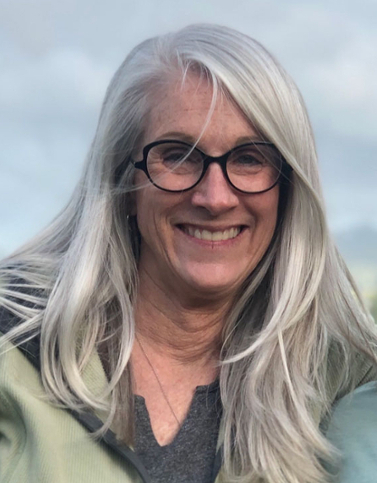
Terri Berg is a patient relations specialist who works the Information Desk at University Hospital. Her team greets visitors and directs them where to go in the hospital. It’s a job she’s always loved. But COVID changed many aspects of her job. Early in the pandemic, with a less strict visitor policy, Terri would escort family members up to the medical intensive care unit so they could say final goodbyes to a dying relative. Other new duties included checking people for proper masking. For her, it was an early understanding of COVID’s devastation. As awful as that part of her job was, she was nevertheless grateful to do it. “I have compassion,” Teri explained, “and I feel like I’m able to put myself into a good place to be helpful on a level where I’m communicating well with them.” The pandemic affected her personal life as well. Terri lost a son to suicide and COVID has impacted her ability to recover and get more involved in suicide prevention causes. The extra hours at work and emotional toll of her job means that this year she has missed a lot of family dinners and sleepovers with grandkids.
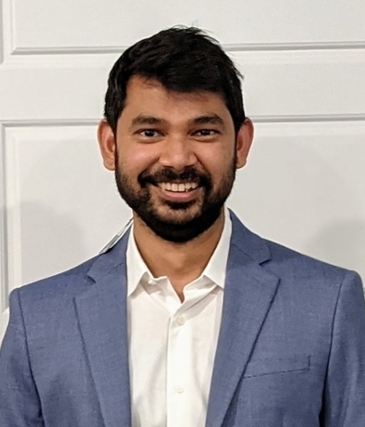
There may be no better example of the wide range of emotions we’ve experienced this year than Saba Parvez, a research scientist in the College of Pharmacy. He spoke of the many fears during the past year: fear of not knowing how long the pandemic would last and uncertainty about how it could impact his research and career. His scientific projects were stopped on short notice, ending months of preparation. There was fear, too, of family members contracting coronavirus. Tremendous frustration came from a travel and visa ban which meant he could not return home to India, for the first time in many years, to attend his sister’s wedding. The wedding was postponed and rescheduled for a time when Saba was able to go. He was able to make it home to visit his family for the first time after five years. He expressed gratitude for the support of his colleagues. Mixed in with other emotions is a high level of hope because the scientific community came together and developed COVID-19 vaccines to keep people alive and return to a more normal life.
Unfortunately for Saba, the prospect of returning to normal in the U.S. brings feelings of guilt as the situation in his home country has worsened. Not being able to do anything here to protect parents in India brings a sense of helplessness. One of his close friends messaged Saba the night before our virtual town hall. The friend’s dad had passed away back in India because of COVID. Deeply sad yet not wanting to end on a note of doom and gloom, Saba smiled and told us there have been some silver linings. He’s been able to push through his research projects and has just submitted a manuscript. He has had an opportunity to “pause and really think about my future and what I want to do.”
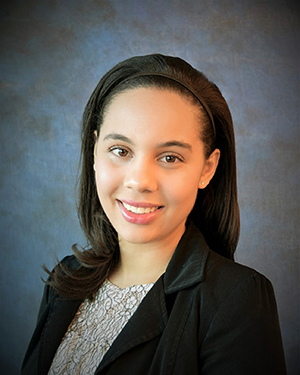
Patrice Hicks is a graduate student in the Department of Population Health Sciences. She told us the coronavirus pandemic began at one of the busiest times for her doctoral program. The shutdown came right as she passed her qualifying examination and became excited about her dissertation proposal. By the time she was ready to defend her proposal, she had lost three relatives to COVID. Amid that loss, she watched racial injustice protests spread across the country, which added to feelings of heavy distress. Despite everything, Patrice managed to proceed with her studies. But just a week before her dissertation defense, she lost her mother-in-law to coronavirus. Both of her parents also contracted COVID. There would be no celebration with family for the milestone of completing her dissertation. “It didn’t feel at all like what I had dreamed about,” Patrice told us. That was just three months ago. She says she now sees a glimmer of hope. Because of vaccinations, she was able to attend her husband’s law school graduation the previous week, and she has finally spent more time with family. Patrice graduates this week with her PhD. She looks forward to starting her post-doctoral career. She is thankful for the support system in her department that has helped her get through “every down I’ve experienced. I am looking forward to the future.”
Stronger Together
We appreciate the frankness and honesty of everyone who was willing to share their stories—both those who spoke at the Moving Forward event and those who volunteered but didn’t have the opportunity to share. Highlights from all the stories are availble on Pulse. The exercise of recognizing allows us to acknowledge a normal response to abnormal events. Naming emotions and sharing them can help us move through the steps of the Recognize and Recover phases toward Rebuild, where we have the opportunity consider the future of U of U Health and our place in the future of health care. Each step requires our full attention as we process the strong emotions of the last year and work together to create the future. As always, we are stronger together.
